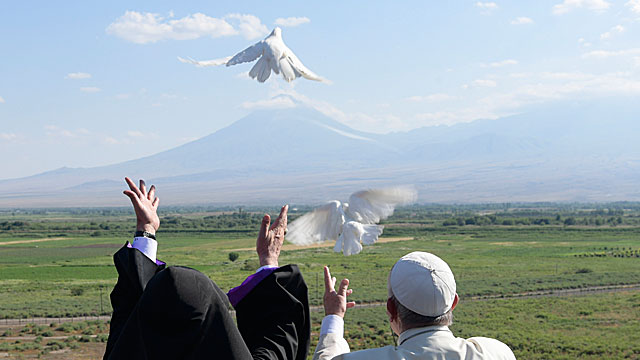From the beginning of a letter attributed to Barnabas
| Hope of life is the beginning and end of our faith |
|---|
Greetings, sons and daughters. In the name of the Lord who loves us, peace be to you.
Because the Lord has granted you an abundance of blessings, I rejoice immeasurably in your blessed and glorious company.
You have received abundantly that indwelling grace
which is the Spirit’s gift, and for this reason I hope in my own
salvation and I give thanks all the more when I see the bountiful
fullness of the Lord’s Spirit pouring over you. I have longed so much
for you that when I saw you I was overwhelmed.
I am now convinced and fully aware that I have learned
much by speaking with you, for the Lord accompanied me on the road to
righteousness, and so I am driven in all ways to love you more than my
own life. For surely there is a great store of faith and charity within
you because of your hope for life in Christ. Therefore, I have been
thinking that if my concern for you inspires me to pass on to you a
portion of what I have received, then I will be rewarded for ministering
to souls such as yours. Consequently, I am writing you, that you may
have perfect knowledge along with your faith.
The Lord has given us these three basic doctrines:
hope for eternal life, the beginning and end of our faith; justice, the
beginning and end of righteousness; and love, which bears cheerful and
joyous witness to the works of righteousness. Now the Lord has made the
past and present known to us through his prophets, and he has given us
the ability to taste the fruits of the future beforehand. Thus, when we
see prophecies fulfilled in their appointed order, we ought to grow more
fully and deeply in awe of him. Let me suggest a few things – not as a
teacher, but as one of you – which should bring you joy in the present
situation.
When evil days are upon us and the worker of malice
gains power, we must attend to our own souls and seek to know the ways
of the Lord. In those times reverential fear and perseverance will
sustain our faith, and we will find need of forbearance and
self-restraint as well. Provided that we hold fast to these virtues and
look to the Lord, then wisdom, understanding, knowledge and insight will
make joyous company with them.
Truly, the Lord has revealed to us through the
prophets that he has no need of sacrifice, burnt offerings or oblations.
He says in one place: Your endless sacrifices, what are they to me?
says the Lord. I have had my fill of holocausts; I do not want the fat
of your lambs, nor the blood of your bulls and goats, nor your presence
in my sight. Indeed, who has made these demands of you? No more will you
trample my courts. Your sacrifices of fine flour are in vain; your
incense is loathsome to me; I cannot bear your feasts of the new moon,
nor your sabbaths.

